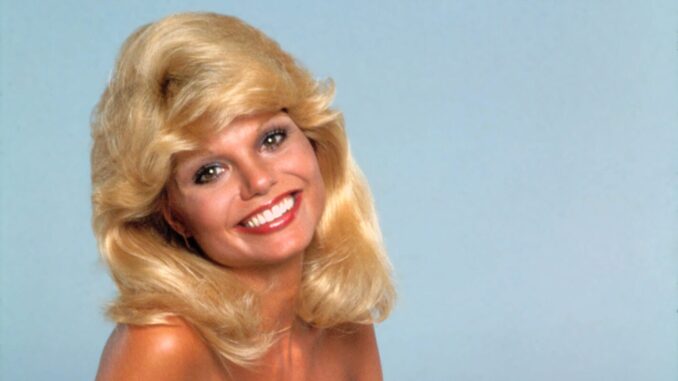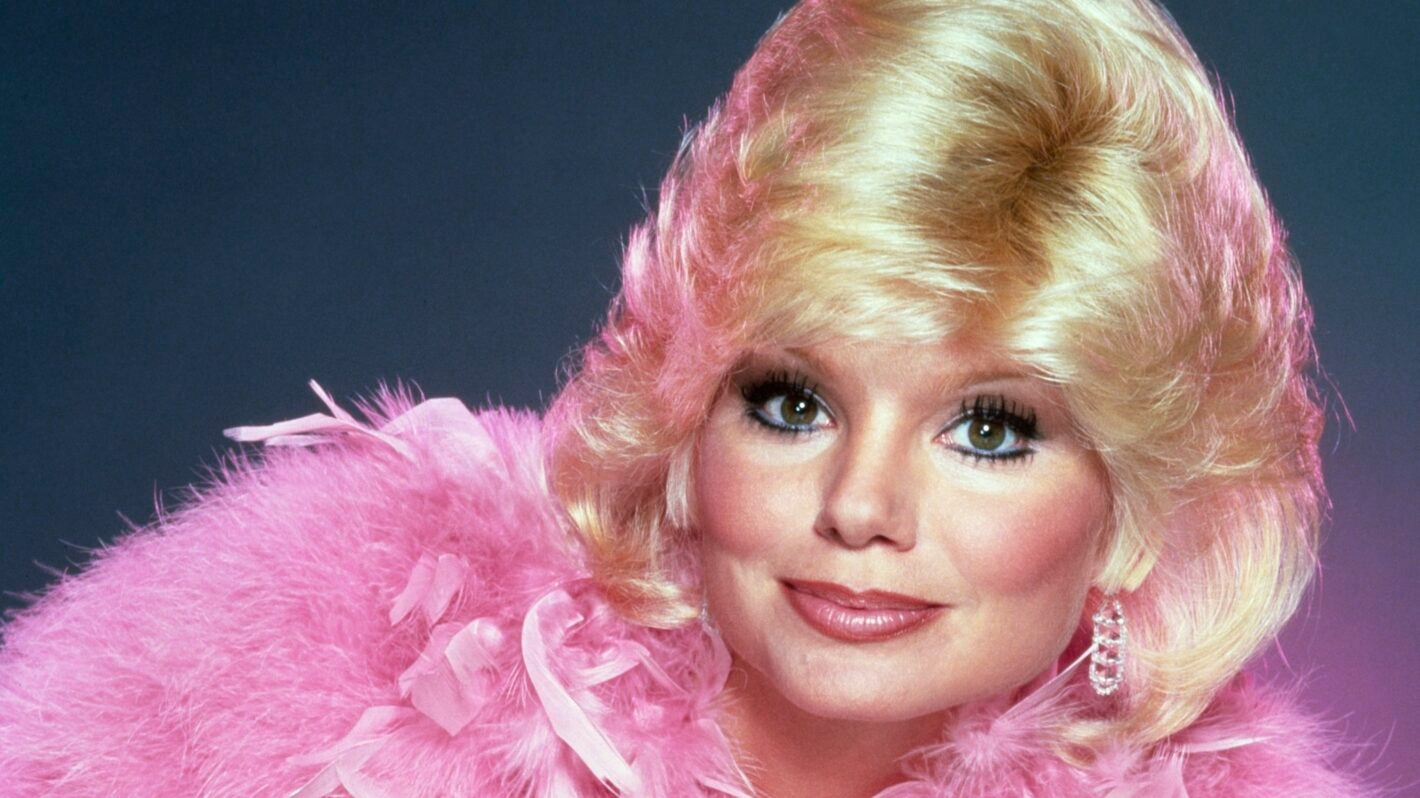
Three’s Company is one of television’s most iconic sitcoms, known for its outrageous misunderstandings, hilarious slapstick humor, and unforgettable cast chemistry. But what many fans don’t know is that Loni Anderson, one of TV’s biggest stars of the late 1970s and early 1980s, almost became part of that classic ensemble — until a bizarre and unexpected reason kept her from being cast.
Let’s dive into the strange Hollywood “what-if” that could have changed TV history forever.
Loni Anderson: The Rising Star of the 1970s
Before WKRP in Cincinnati made her a household name, Loni Anderson was already building a reputation in Hollywood as a rising bombshell actress. With her stunning looks, comedic timing, and undeniable charisma, she seemed tailor-made for the type of roles that dominated sitcoms of the era.
Producers and casting directors were taking notice — and when Three’s Company began casting its trio of roommates, Anderson’s name quickly came up.
The Search for the Perfect Blonde
The role of Chrissy Snow, the bubbly and slightly ditzy blonde roommate, became one of the most sought-after parts in Hollywood in 1976. The character required just the right blend of charm, innocence, and comedic timing.
Producers wanted someone who could make audiences laugh and light up the screen — and Loni Anderson checked every box.
At least, that’s what everyone thought at first.
The Audition That Surprised Everyone
According to insiders from the show’s early casting process, Anderson’s audition was impeccable. She nailed the comedic beats, understood the rhythm of the script, and had the perfect playful energy for the part.
But there was a problem — and it wasn’t her talent.
The producers reportedly felt that Loni Anderson was too sexy for the role of Chrissy. They worried her glamorous, sultry presence would overshadow the innocent, girl-next-door image they wanted for the character.
In short: she was too good-looking for Three’s Company.
Hollywood’s Beauty Bias — in Reverse
In a bizarre twist, Anderson’s undeniable beauty worked against her.
The show’s creators believed that Chrissy Snow needed to be portrayed as sweet, approachable, and a bit naive — someone audiences could laugh with, not just at. Suzanne Somers, with her soft voice, wide-eyed innocence, and natural comedic charm, fit that mold perfectly.
Anderson, on the other hand, carried a more sophisticated glamour that producers feared might make Chrissy seem too self-aware or confident.
It’s one of those rare Hollywood moments where being too stunning actually cost someone a job.
Suzanne Somers Steps Into the Spotlight

Once Loni Anderson was passed over, the role eventually went to Suzanne Somers, whose portrayal of Chrissy Snow became legendary. Somers’ comedic innocence, physical humor, and warm energy turned the character into a television icon.
Anderson, meanwhile, would soon find her own success — just on another sitcom.
A Blessing in Disguise: WKRP in Cincinnati
Not long after missing out on Three’s Company, Anderson landed her career-defining role as Jennifer Marlowe on WKRP in Cincinnati (1978–1982).
Ironically, the character of Jennifer was the exact opposite of Chrissy Snow. She was sophisticated, intelligent, and effortlessly glamorous — a woman fully aware of her beauty and wit.
In hindsight, it seems fate had a better plan for Anderson. She became the perfect match for a role that embraced everything Three’s Company had considered “too much.”
Behind-the-Scenes Casting Politics
Casting decisions in Hollywood often come down to more than just talent. In the case of Three’s Company, producers were extremely cautious about tone. They wanted a show that flirted with sex appeal but didn’t cross the line into being overtly risqué.
Loni Anderson’s magnetic on-screen presence, while perfect for some roles, was seen as potentially distracting in a show that relied heavily on innocent misunderstandings and lighthearted innuendo.
In other words — they feared she might make the comedy too steamy.
What If Loni Anderson Had Joined the Cast?
It’s one of those tantalizing “what-ifs” that TV fans love to debate.
If Loni Anderson had been cast as Chrissy Snow, Three’s Company might have had a very different tone. Her energy could have made the show feel more like a sophisticated sex comedy than a slapstick farce.
It’s entirely possible that the series wouldn’t have achieved the same broad family-friendly appeal that made it such a hit in the late 1970s.
The Irony of It All
The irony is rich — Loni Anderson’s stunning looks were considered a liability for Three’s Company, yet those very qualities became her greatest strength on WKRP in Cincinnati.
There, she played a woman who knew exactly how to use her beauty — not as a joke, but as a superpower. Jennifer Marlowe was smart, capable, and confident, breaking the mold for blonde TV characters in an era that often reduced them to simple punchlines.
Loni Anderson’s Later Reflections
Over the years, Anderson has spoken fondly of her early career, acknowledging the roles she didn’t get as stepping stones toward the ones that defined her.
While she’s never expressed bitterness about missing Three’s Company, she’s admitted that the industry’s obsession with appearance was both a blessing and a curse.
She once joked, “Sometimes Hollywood doesn’t know what to do with you when you’re blonde and can read lines.”
Suzanne Somers and Loni Anderson: Two Icons, Two Paths
Both actresses became iconic in their own right — Somers as the sweet, lovable Chrissy Snow and Anderson as the witty, glamorous Jennifer Marlowe.
Interestingly, both faced similar challenges in Hollywood, including typecasting and struggles for creative respect. Yet each carved out her own legacy, proving that there’s no single path to stardom.
The Casting Choice That Shaped Sitcom History
Looking back, the decision to pass on Loni Anderson might have been one of the smartest — albeit strangest — moves in sitcom casting history.
Suzanne Somers’ portrayal helped Three’s Company strike the perfect balance of innocence and sex appeal, while Anderson went on to give WKRP the elegance and intelligence it needed.
In the end, both actresses got the roles they were meant to play.
Hollywood’s Strange Standards Then vs. Now
The story also highlights how much the entertainment industry has evolved. Today, a performer like Loni Anderson might be celebrated for bringing both beauty and brains to a role like Chrissy.
But in the 1970s, producers were hyper-aware of public perception. They wanted Three’s Company to flirt with controversy — not dive into it.
That conservative caution is exactly what made Anderson’s look feel “too risky.”
A Missed Opportunity or Perfect Fate?
Was it a missed opportunity for Anderson — or fate at work? Most fans agree it was the latter.
Had she taken on Three’s Company, she might never have found her perfect fit on WKRP in Cincinnati. And who knows — without Suzanne Somers’ iconic portrayal, Three’s Company might not have become the pop-culture powerhouse it remains today.
Conclusion
In the strange world of Hollywood casting, success often comes down to timing, chemistry, and a little luck. For Loni Anderson, not being cast in Three’s Company wasn’t a failure — it was fate steering her toward the role that would make her a legend.
The reason she didn’t get the part may seem bizarre — being too attractive — but it also reveals how tightly controlled TV image-making was in the late ‘70s.
Ultimately, it all worked out exactly as it should have: Suzanne Somers became America’s sweetheart, and Loni Anderson became television royalty in her own right.
